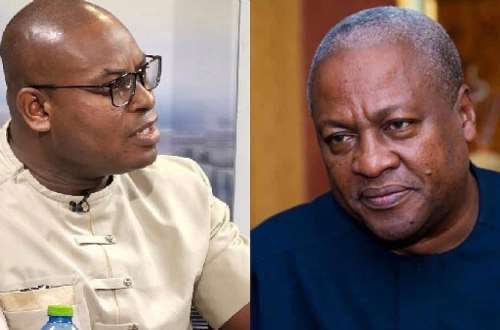The recent decision by the Presidency to limit access to President John Dramani Mahama’s first presidential media encounter has sparked controversy, particularly regarding the alleged exclusion of certain media outlets. Richard Ahiagbah, the National Communications Director of the opposition New Patriotic Party (NPP), has publicly criticized the move, raising concerns about potential bias and restrictions on press freedom. Ahiagbah questions the criteria used for accreditation and challenges the notion that the Presidency should be treated as an exclusive domain of the ruling National Democratic Congress (NDC). The heart of the issue lies in the perceived exclusion of media outlets perceived as aligned with the opposition, such as Asaase Radio and Wontumi Multimedia, while ostensibly pro-NDC outlets like Woezor TV are granted access. This selective accreditation process raises fundamental questions about impartiality and the role of the media in a democratic society.
The Presidency’s justification for the restricted access remains unclear, with the official statement simply mentioning that participation is “strictly by accreditation.” This lack of transparency fuels speculation and accusations of partisan maneuvering, potentially undermining the credibility of the media encounter itself. The purpose of such events is to provide a platform for the president to communicate directly with the public and address critical national issues. However, limiting participation based on perceived political affiliations compromises the integrity of this communication channel and creates an environment of distrust.
The broader implications of this incident extend beyond the immediate controversy. It highlights the ongoing tension between the government and the media, particularly concerning access to information and the freedom to report without fear or favor. In a healthy democracy, the media serves as a crucial watchdog, holding those in power accountable and ensuring transparency. When access is restricted or manipulated, this essential function is compromised, potentially leading to an erosion of public trust and a less informed citizenry.
The alleged exclusion of certain media outlets also raises questions about fairness and equal opportunity. Every media organization, regardless of its political leanings, should have the right to cover events of national importance. Restricting access based on perceived bias or affiliation creates an uneven playing field and potentially silences dissenting voices. This not only undermines the principles of a free press but also deprives the public of a diverse range of perspectives.
The controversy surrounding President Mahama’s media encounter serves as a reminder of the fragility of democratic institutions and the ongoing need to protect press freedom. A vibrant and independent media is essential for a healthy democracy, and any attempts to restrict or manipulate its access should be met with strong resistance. The incident underscores the importance of transparent and accountable governance, where decisions regarding media access are based on objective criteria rather than political considerations.
Moving forward, it is crucial for the Presidency to clarify its accreditation process and address the concerns raised by the opposition and media organizations. Open dialogue and a commitment to inclusivity are essential for restoring trust and ensuring that future media encounters are genuinely representative of the diverse voices within the Ghanaian media landscape. The incident provides an opportunity for reflection and a reaffirmation of the principles that underpin a free and democratic society.














